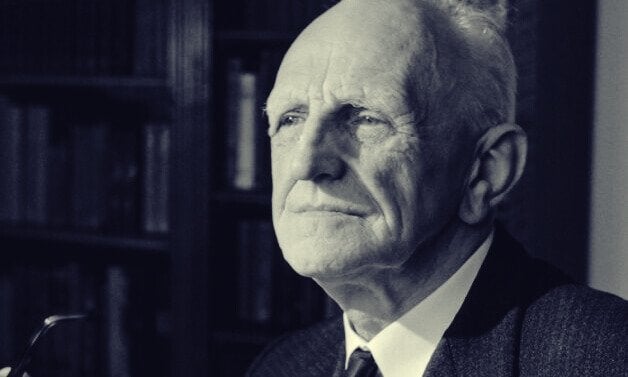Donald Winnicott was a famous English psychiatrist, psychoanalyst and pediatrician who developed an interesting approach to personality and, due to his training as a pediatrician, focused his thinking on children, particularly the relationship between mother and son and the consequences of it.
She worked with the famous psychoanalyst Melanie Klein, including caring for one of her children. He was also president of the British Society of Psychoanalysis and a renowned 20th-century thinker.
- “In the game.
- And only in this one.
- The child or adult can create and use the whole personality.
- And the individual only discovers himself when he believes.
- Donald Winnicott?.
Some of his most interesting contributions are the fake self or the fake self, as well as his concepts of “a pretty good mother?”And “a devoted mother without complications. ” Similarly, the concept of “transition object” has been adopted by many psychology schools.
Like other psychoanalysts, Winnicott states that, in the first year of life, mother and child are a unit. You can’t talk about the baby as a separate entity from your mother. Both include an indivisible psychic unit.
Donald Winnicott says that mother is the first environment that a human being has, the total basis for further development. That’s why, especially in the first few months of life, the mother is the baby universe, the world is practically synonymous with mother.
The concept of “pretty good mother?” appears at this time. It is she who provides the necessary care to the baby, spontaneously and sincerely. It’s ready to be the foundation and environment the child needs. Without being perfect, it does not exceed care or neglect the baby. This mother gives birth to a true self, or a true self.
Meanwhile, the unremarkable selfless mother? It’s the one that develops an excessive or overprotective attachment to your child. Who is also unable to respond to the spontaneous manifestations of the child. This results in what Winnicott called a fake me or a “fake me. “
The mother is like a mirror for the child. The child sees how she looks at him and learns to identify himself as human with him. Gradually the baby is separating from her mother and she has to adapt to it. The child has spontaneous gestures that are part of his individuality. If the mother welcomes them, she feels real If this is not the case, a sense of unreality forms.
When this interaction between mother and baby fails, what Winnicott calls the “break of existential continuity”, that is, a radical rupture in the spontaneous development of the baby, and this is what gives birth to the false self or the false self. .
Winnicott says that under these circumstances, the baby becomes “the mother of himself. “This means that he begins to hide his own ego to protect himself. Learn to show only what your mother wants to see.
There are different levels of counterfeiting per se, according to Winnicott, at the most basic level, there are those who adopt a courteous attitude and adapt perfectly to the rules and duties; at the other end is schizophrenia, a state of mind in which the person is excluded to the point that his true self practically disappears.
For Winnicott, the false self appears in all serious mental disorders; in this case, the person uses all available resources to structure and maintain this false self, with the aim of facing a perceived world as unpredictable or unreliable.
Winnicott says that much of a person’s efforts with a very strong false self are geared towards the intellectualization of reality, that is, to transform reality into the object of reason, not into emotions, affections or creative acts. When such intellectualization succeeds, the individual is perceived as normal However, he does not experience what lives as personal, but as something strange.
He cannot be happy with his triumphs or feel valued, for him it is his false self who has achieved the goals or is valued, this marks a break between him and the world. The real one is confined to you, fantasizing and experiencing an discomfort that you can never understand alone.

